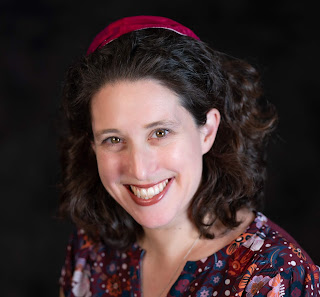 |
| Rabbi Dara Lithwick |
By Rabbi Dara Lithwick
I have written before about how lifelong learning is a fundamental
Jewish value. Indeed, we are obligated to study and to learn until we breathe
our last breaths, says 12th century sage Maimonides in his code of Jewish law, Mishneh
Torah. We are never too old to learn.
As I write, all four Ontario teachers’ unions are engaged in some form
of job action, including rotating strikes. Sticking points exist between the
unions and the province regarding support for students with special needs,
wages for teachers, maintaining full-day kindergarten, class sizes, and hiring
practices. Our children, who are both in public school and are impacted by what
is going on, have asked what this all means. We have responded by reiterating
how important and special and fundamental their teachers are (our kids know
that!), and how they and the provincial government are trying to figure out
important questions about work conditions and school, and how the current
labour action is about trying to make sure that students are best able to
succeed.
My kids got me thinking about what our tradition has to say about teachers
and education.
The obligation to learn also incorporates the duty to teach,
particularly our children. Not once, but twice in the Shema blessings we are
commanded to teach Torah to our children (Deuteronomy 6:7 and 11:19). Proverbs
22:6 adds, “Train youth in the path s/he should follow. S/he will not swerve
from it even in ripe age.” The Talmud obliges parents (I am interpreting it in
a gender inclusive manner) to teach our children Torah, a craft, and how to
swim (Kiddushin 29a).
The sages of the Talmud realized that not all parents were capable of
providing their children with a formal education. So, the sages instituted a
mandatory system of public education that looks quite similar to what we have
today. The Talmud says this was based on the orders of first century Jewish
high priest Joshua ben Gamla to institute public education for the masses,
“that teachers of children should be established in each and every province and
in each and every town, and they would bring the children in to learn at the
age of six and at the age of seven.”
Class sizes and wages are also discussed in the Talmud. Classes are
capped, and assistants are required if there are more students: “The maximum
number of students for one teacher of children is 25 children. And if there are
50 children in a single place, one establishes two teachers, so that each one
teaches 25 students. And if there are 40 children, one establishes an
assistant, and the teacher receives help from the residents of the town to pay the
salary of the assistant. (Bava Batra 21a).” We see here how local residents
contribute to pay the relevant salaries.
Overall, the value and import of the teacher in the learning process is
emphasized in the Mishnah, in Pirkei Avot, and throughout the Talmud. Further,
as stated in the Jewish Virtual Library entry on “Education,” the Talmud
repeatedly highlights “the significance of motivation in teaching and of
vocational training principles, which are basic to effective instruction and a
modern educational system.”
For example, in Pirkei Avot there is found the famous Jewish proverb,
“Make for yourself a teacher, and acquire for yourself a friend (1:6).” Later,
Rabbi Elazar ben Shammua says, “Let the honour of your student be as dear to
you as your own, and the honour of your colleague as the reverence for your
teacher, and the reverence for your teacher as the reverence of heaven (4:12).”
Rabbi Elazar ben Shammua’s statement speaks to the deep care and respect
that my children’s teachers give to them and the other kids in their classes,
in terms of how I see them teaching our children. It also speaks to the respect
that we have, and that our children have, for our teachers. May the current
labour action be resolved in a manner that expresses this fundamental respect
for teachers, for children, and for public education.
